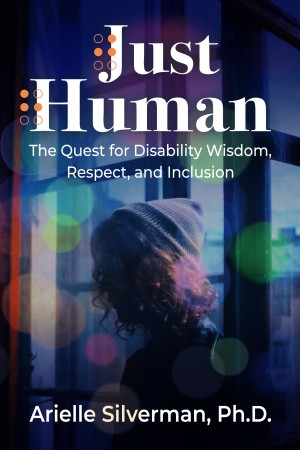Earlier this week, Charles S. Sherman wrote about a miraculous baseball team and a life-altering event and how he’s handled the challenge. His book,The Broken and the Whole: Discovering Joy after Heartbreak, will be published in March by Scribner. He has been blogging here all week for Jewish Book Council and MyJewishLearning.
 Rabbi Jack Riemer is one of my favorite people. He is a “rabbi’s rabbi.” Our personal relationship is at best, casual. We are from different generations. But I enjoy his preaching style, his talent for being at the same time folksy and instructive. He has the ability to take the seemingly ordinary, the “Seinfeld moments” in our lives, and discover a profound Jewish and universal truth. His messages are frequently delivered with a twinkle in his eye and a great sense of humor.
Rabbi Jack Riemer is one of my favorite people. He is a “rabbi’s rabbi.” Our personal relationship is at best, casual. We are from different generations. But I enjoy his preaching style, his talent for being at the same time folksy and instructive. He has the ability to take the seemingly ordinary, the “Seinfeld moments” in our lives, and discover a profound Jewish and universal truth. His messages are frequently delivered with a twinkle in his eye and a great sense of humor.
I was flattered, some weeks ago, to receive, unsolicited, a lovely email from Rabbi Riemer. Somehow he had learned about my forthcoming book and requested a review copy. His reviews are well-respected and honest. His reviews are carried in many Jewish newspapers throughout North America. Thus I was excited to receive his email.
Almost 30 years ago, when my son Eyal suffered a brainstem stroke, leaving him quadriplegic and vent dependent, I received lots of lovely cards and generous letters offering prayers and support. Back then, I delivered a sermon, “There are No Atheists in Intensive Care,” that was probably more for me than for other people. It was published in a small professional journal, The American Rabbi. Apparently Rabbi Riemer had read it and was kind enough to drop me a handwritten note, that to this day I have kept. It was one of encouragement and friendship, albeit very brief. “Just a note to say, how deeply moved I was by your sermon in The American Rabbi. I wish you and your family much strength — thank you for sharing your soul with us.”
When I received Rabbi Riemer’s request for a review copy, my mind went back to that letter that was still in my desk drawer. I wrote Rabbi Riemer and told him I still had the letter. I even quoted it. He in turn wrote back to me: “I was just writing a sermon when your email came in, about how you sometimes do what you think is a small deed, and how it ends up affecting the world more than you know. The example I was using was the stranger who met Joseph, and told him where his brothers were. If he had not been there, Joseph and later his people would not have gone down to Egypt and there would have been no Exodus. That stranger changed the course of human history and yet if you had asked him: Did he remember that one-minute conversation that he had had with the teenager Joseph, he would have probably said no. I feel that way about your letter and the fact that you saved my note for all of these years.”
If all of us look back on our lives, we can remember our childhood when an adult — a teacher, a coach, a neighbor or an aunt or uncle perhaps — offered a kind word or some advice that helped us during a difficult time. They may not have understood the impact of their words and or actions. But I contend those are the things that we hold onto, that we remember always.
Charles S. Sherman is the Senior Rabbi of Temple Adath Yeshurun, the largest synagogue in Central New York. Active in numerous faith-based and secular organizations, he has received many awards for his service and has been a respected member of his community for over forty years. He and his wife, Leah, parents of five children, live with their son Eyal in Syracuse, New York.Charles S. Sherman is the Senior Rabbi of Temple Adath Yeshurun, the largest synagogue in Central New York. Active in numerous faith-based and secular organizations, he has received many awards for his service and has been a respected member of his community for over forty years. He and his wife, Leah, are the parents of five children and live with their son Eyal in Syracuse, NY.



